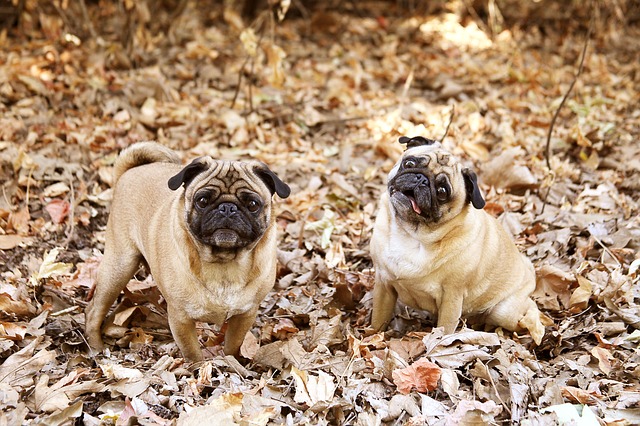Do dogs get pancreatitis? Vigilance is the job description that comes with owning a dog. It could help with accident prevention and mood checking, yet, being vigilant alone won’t tell the dog parent whether dogs get pancreatitis or not. It certainly won’t be helpful with any health issue associated with the canine’s digestive system. For that, you need to be well-enlightened and well-acquainted with canine’s biology and their health issues.

Do Dogs Get Pancreatitis? The Answer!
Acute and chronic pancreatitis can both occur to your puppy, and the dog’s certain age or sex won’t make a difference as the mechanism which triggers pancreatitis in the human digestive system is the same one that affects dogs.
Your dog can get pancreatitis when inflammation occurs in its pancreas due to the irritation of the pancreatic cells caused by the pre-activation of digestive enzymes (digestive enzymes get activated while the are still in the pancreas).
Are Some Dog Breeds At More Risk Of Developing Pancreatitis?
Certain breeds of dogs might be predisposed to pancreatitis more than others. These include Cocker Spaniels, Miniature Schnauzers, Dachshunds, Yorkshire terriers, and poodles.
How Do I Know My Dog Has Pancreatitis?
The main symptoms of canine pancreatitis are diarrhea, fever, lethargy, loss of appetite, severe recurring vomiting, bloating (or stomach pain), and hunched back.
Suppose you’ve noticed that your dog is repeatedly suffering from more than one of the above signs. In that case, you should consider calling your vet immediately as your dog might be suffering from pancreatitis.

Why Does My Dog Have Pancreatitis? Causes Of Pancreatitis In Dogs
Science has associated many risk factors with canine pancreatitis. Still, it’s hard to precisely predict why dogs get pancreatitis without having explicit knowledge of the dog’s medical history, recent activities, weight, and dietary habits.
Several causes and risk factors can lead to pancreatitis in dogs. Though usually, the attack arises apparently out of the blue. Your Dog Could Be Having Pancreatitis Because It Has:
- Overweight.
- Hypothyroidism. (Or other endocrine diseases)
- Diabetes Mellitus.
- Diet Rich With Fat.
- Genetic Predisposition.
- Been Scavenging Lately.
- A History Of Dietary Mistake. (It means your dog will basically eat anything)
- History With A Blunt Trauma.
- Cushing’s Syndrome.
- Certain Types of Toxins Or Medications. (Such as potassium bromide, cholinesterase inhibitors, l-asparaginase, calcium, vinca alkaloids, salicylates, phenobarbital, azathioprine, estrogen, and thiazide diuretics).
- Certain Types Of Infections Like Leishmania.
- High Blood Levels Of Triglycerides.
Human food is incredibly terrible for dogs, though also high-fat dog food can induce pancreatitis. So owner attention is especially needed around celebrations and other festive occasions as they can bring well-meaning guests.
These guests might slip your dog a fat-rich piece of lamb or a plate full of delicious buttery cookies forgotten within your dog’s reach. In truth, the day after Thanksgiving is more than just Black Friday discounts. It’s one of the most hectic days of the year with pancreatitis-related emergency veterinarian appointments.
Primarily, if your dog shows any abdominal illness symptoms, the most dangerous thing is to feed your dog fatty food. This is the main reason why serving your dog meal scraps, as alluring as it may be, is not advisable.

How Does Your Vet Diagnose Pancreatitis In Dogs?
Your dog’s pancreatic enzymes’ levels will be the main lead for your vet’s diagnose. Nevertheless, your dog’s medical history will be required from you as well. An examination will be done. It would mainly include the area of the stomach and the heart.
You should also expect that your vet will do several physical examinations, such as examining the body temperature, heart, stomach, and gums.would be measured. Your vet may also run a radiographic or ultrasound exams just so that your veterinarian could make sure that your dog is suffering from pancreatitis and rule out other causes.
Your vet’s final step in the diagnose process exposes your dog to the pancreas’ fine-needle aspiration.
Acute Pancreatitis VS Chronic Pancreatitis
- Acute Pancreatitis
Acute pancreatitis is referred to as the sudden inflammation of the pancreas. It could be life-threatening to other organs.
- Chronic Pancreatitis
Chronic pancreatitis is an inflammation of the pancreas that is un-improvable. It usually develops over time slowly without showing any symptoms. It could result from the previous agitation of acute pancreatitis.

Treatment Of Pancreatitis In Dogs
It isn’t easy to treat Pancreatitis in dogs, and no fancy therapy for acute pancreatitis; various treatments can be conducted depending on the initial reason behind it.
Antiemetic medication shall be given to your dog to help with the vomiting and to prevent dehydration. Your vet will inform you to withhold any food or water from your dog for up to 24 hours to rest the pancreas.
If your dog were suffering from severe pancreatitis, intravenous fluid treatment would be given.
For long-term pancreatitis management, some dietary alterations must be made. For instance, no more movie-time French fries or any fat-rich foods should be served (there is no problem with moderation. Still, vigilance towards dietary choices is a prerequisite to maintain your dog’s health).
Nevertheless, customary dietary meals aren’t the only thing that should be changed. Habitual eating methods should be given as much care, no more frequent eating or large meals at once, or basically anything that could interact with the pancreas sensitivity.
It’s also a medical fact that serum amylase and lipase levels are increased in the case of pancreatitis, so you should schedule a monthly meeting with your vet to check for their levels.

Prevention Of Pancreatitis In Dogs
There is no magical way to prevent your dog from getting pancreatitis. However, by simply asking yourself when do dogs get pancreatitis? You would have a clear plan of what should be done and why it must be done.
Here are a few steps you should force your dog to follow for ensuring fewer risks.
- Maintaining a healthy weight.
- Regular walking.
- Incorporating fish oil into the daily diet.
- Enrich the diet with vitamin E and selenium.
- Use the help of powerful antioxidants like vitamin C, methionine, and beta-carotene.
If you have more information or a different answer to the question, do dogs get pancreatitis, please write them down below in the comment section. So, every dog owner benefits from that.
You’ll Also Love These Posts:
Studies have shown if you like this blog article — you will also love the following posts.


